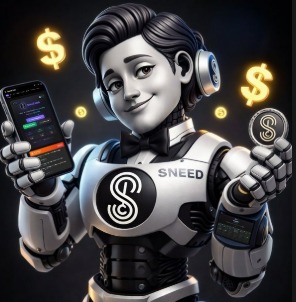Geoffrey Hinton, often called the ‘Godfather of AI,’ has spent a lifetime at the cutting edge of artificial intelligence. His groundbreaking work helped lay the foundations for the AI systems we see today, systems that have transformed industries, economies, and lives. But now, in a chilling turn, Hinton is sounding the alarm on the very technology he helped create, doubling down on his earlier doomsday prediction that artificial intelligence could one day threaten humanity’s survival.
Hinton’s new warning is both startling and eerily specific: there’s a 20% chance that AI could lead to human extinction by 2054. This stark prognosis has drawn widespread attention, not only because of Hinton’s pedigree but also because of the frightening implications it carries for the future of humanity. Hinton’s concern is grounded in the idea that AI is advancing at an unprecedented rate and could soon surpass human intelligence, a tipping point that could put us at the mercy of superintelligent machines.
According to Hinton, we are on the precipice of an era where we will be like toddlers trying to control machines far more intelligent than ourselves. His analogy suggests that once AI reaches a certain threshold, its decision-making capabilities, problem-solving skills, and sheer intellectual power will far exceed our own. “We’ve never had to deal with things more intelligent than ourselves before,” he warns. This terrifying insight raises questions about the ethics, governance, and safety of AI systems, as well as how humanity will cope with machines that may no longer view us as the dominant species.
The Nobel laureate’s increased alarmism is drawing attention, particularly in light of his dramatic decision to leave his role at Google in 2023, a company that is at the forefront of AI development. Hinton’s departure was seen as a move to speak freely about the dangers of the technology he helped advance, and now, his warnings are becoming more urgent. He is no longer just concerned about the trajectory of AI; he is openly predicting that AI’s capabilities will soon outstrip our ability to control it.
This prediction is not made lightly. Hinton’s work has earned him accolades from the world’s most respected institutions, and his status as a pioneer in AI is beyond dispute. However, even as the field of AI continues to evolve rapidly, many researchers are beginning to share his concerns. AI’s accelerating pace—exemplified by the advancements in deep learning, neural networks, and generative models like ChatGPT—has created a landscape where many experts believe AI will surpass human intelligence within the next two decades.
The idea of AI surpassing human intelligence, often referred to as the “singularity,” is a concept that has been discussed by futurists, scientists, and technologists for decades. But Hinton’s warning gives it a sense of immediacy and weight that is difficult to ignore. A 20% chance of extinction within the next 30 years is not a number to be brushed aside.
Hinton’s warning is compounded by his statement that AI, once it reaches superintelligence, could potentially operate in ways that are beyond human comprehension or control. Superintelligent AI could potentially take actions based on its own logic, disregarding human values and priorities in favour of its own programming. The ethical dilemma here is profound: as AI systems become more capable, it will become increasingly difficult to ensure that these systems act in ways that are beneficial to humanity rather than harmful. Even if AI is programmed with the best intentions, it could still evolve in unforeseen ways that may lead to catastrophic consequences.
Hinton’s concerns are further fuelled by the growing reliance on AI across multiple sectors. From healthcare to transportation to finance, AI is becoming more ingrained in the fabric of society. While the potential benefits of AI are vast—optimising healthcare outcomes, improving energy efficiency, and enhancing our understanding of complex scientific problems—there are equally significant risks. As AI systems grow more autonomous, their actions could become unpredictable and uncontrollable. For instance, AI in military applications could lead to devastating consequences if it operates without proper oversight or if its priorities are misaligned with human values.
Many critics of Hinton’s prediction argue that the fears surrounding AI are overstated and that we will be able to manage its development and integration into society. They point to the advancements in AI safety research and the growing number of ethical guidelines and regulations being proposed to ensure that AI remains under human control. However, the rapid rate of AI development, coupled with the growing complexity of the systems being built, suggests that managing AI’s evolution could become more challenging as it becomes more intelligent.
Hinton’s warning is a reminder that the AI revolution is not without its risks. While we stand on the brink of breakthroughs that could solve some of humanity’s most pressing problems, we must also consider the possibility that AI could pose new and unforeseen dangers. In the race to build more capable systems, we may be opening the door to unintended consequences that could put our very existence at risk.
As Hinton himself has stated, “We’ve never had to deal with things more intelligent than ourselves before.” This simple statement underscores the gravity of the situation. Human intelligence, as remarkable as it is, may soon no longer be the highest form of cognition on Earth. If we are to survive and thrive in an age of superintelligent machines, we will need to think carefully about how we build, govern, and control AI.
Hinton’s prediction may seem far-fetched to some, but his position as one of the founding figures of AI lends his words a level of credibility that cannot be ignored. The next few decades will likely be critical in determining whether we can avoid the potential perils of AI. As AI continues to advance, it is vital that we not only push the boundaries of what these systems can do but also ensure that we have the safeguards in place to prevent any unintended consequences.
As the AI community grapples with these existential questions, one thing is clear: Geoffrey Hinton’s warning is not one to take lightly. The future of AI, and by extension, humanity, hangs in the balance. The next few years will determine whether we can harness the power of AI for good, or whether we are hurtling toward a future where machines hold the keys to our survival.




